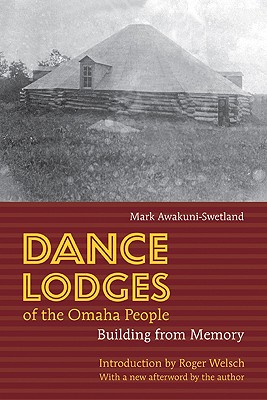After the Omaha Nation was officially granted its reservation land in northeastern Nebraska in 1854, Omaha culture appeared to succumb to a Euro-American standard of living under the combined onslaught of federal Indian policies, governmental officials, and missionary zealots. At the same time, however, new circular wooden structures appeared on some Omaha homesteads. Blending into the architectural environment of the mainstream culture, these lodges provided the ritual space in which dances and ceremonies could be conducted at a time when such practices were coercively suppressed.
Drawing on the oral histories of forty Omaha elders collected in 1992, Dance Lodges of the Omaha People provides insights into how these lodges shaped Omaha cultural identity and illustrates the adaptive abilities of the modern Omaha tribe. The lodges replaced the diminished prereservation tribal institutions as maintainers of tribal cohesion and unity and at the same time provided an arena for selective acculturation of outside ideas and behaviors. A new afterword by the author highlights advances in research on these unique structures since 1992 and speculates on the connection between these lodges and the spread of the Omaha Hethushka dance across the Great Plains.










